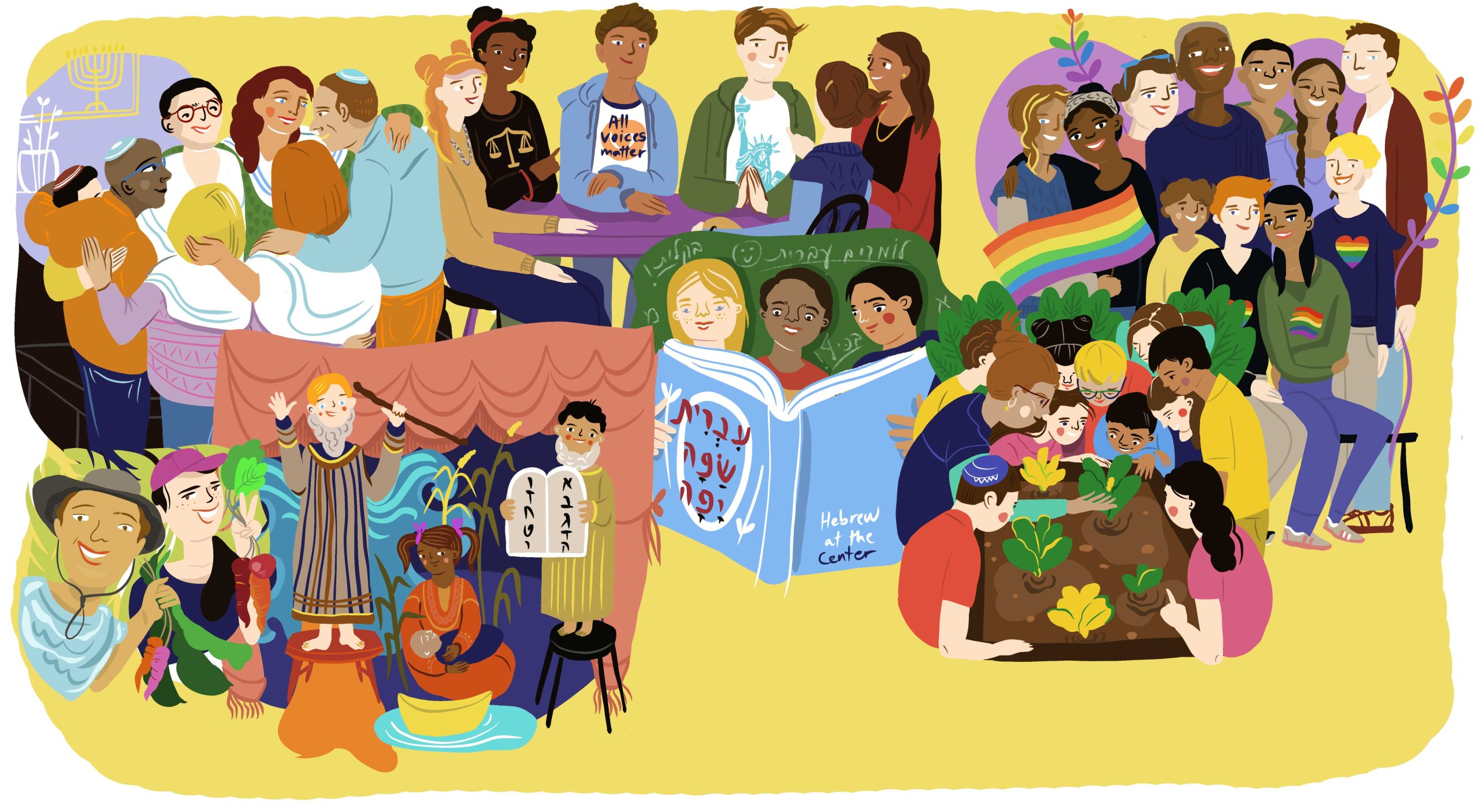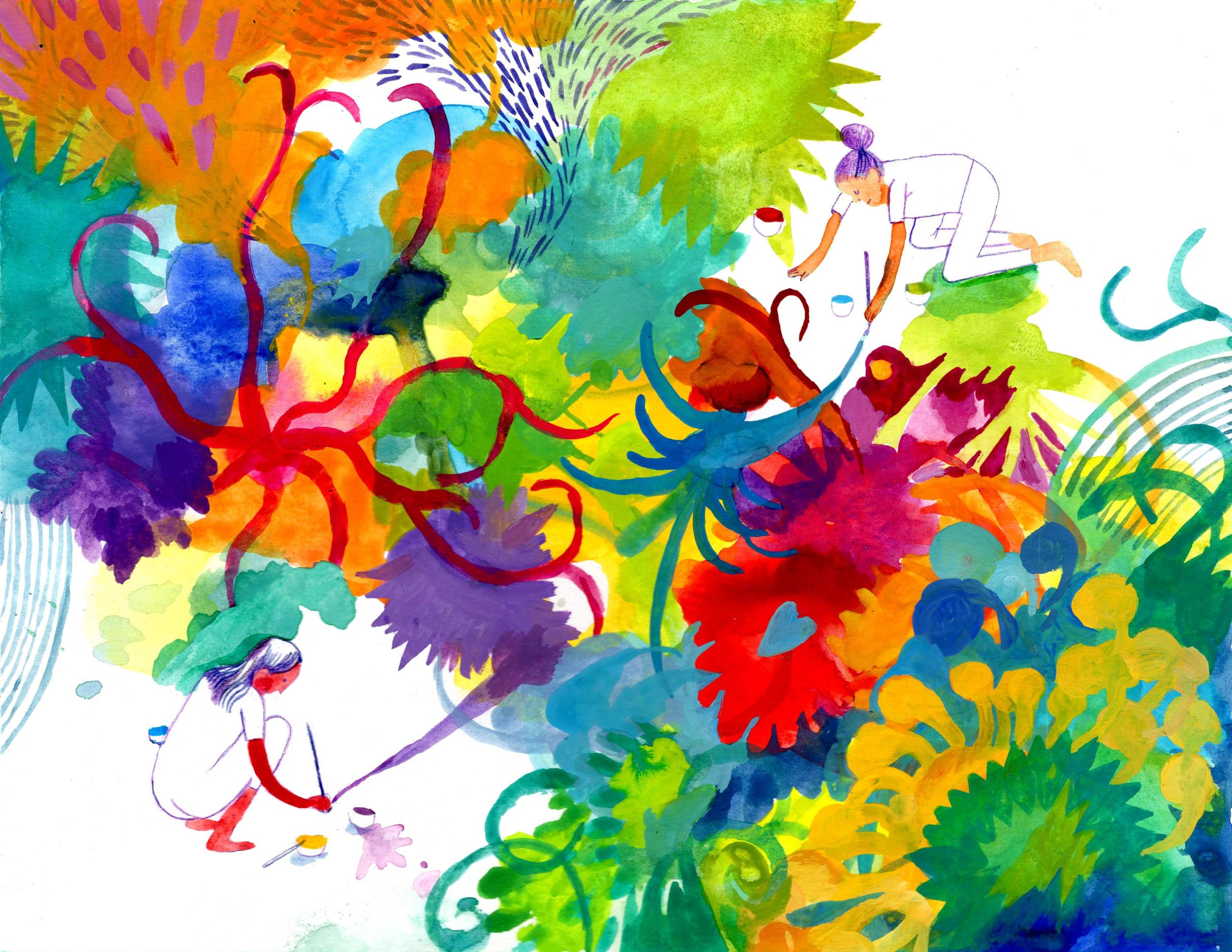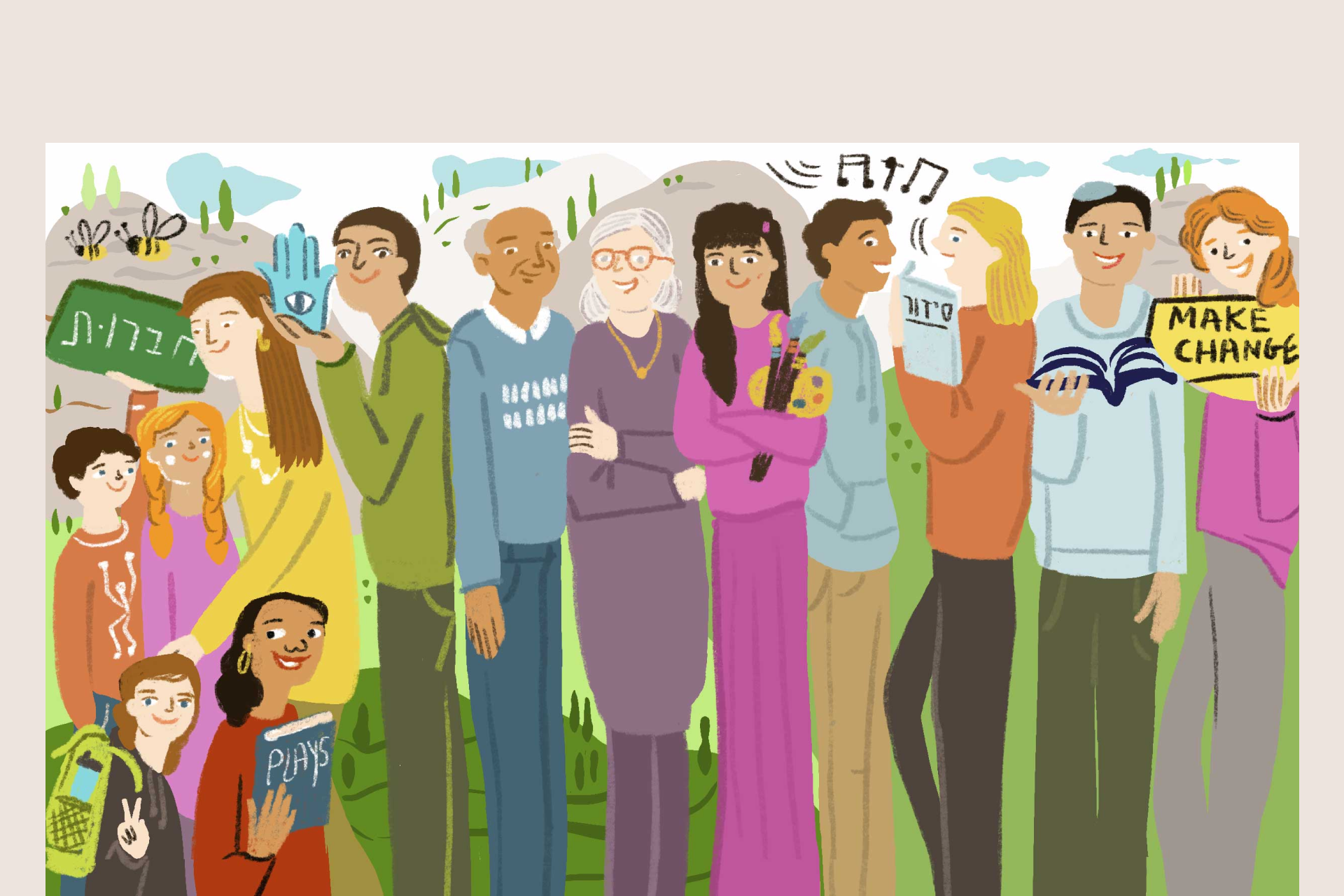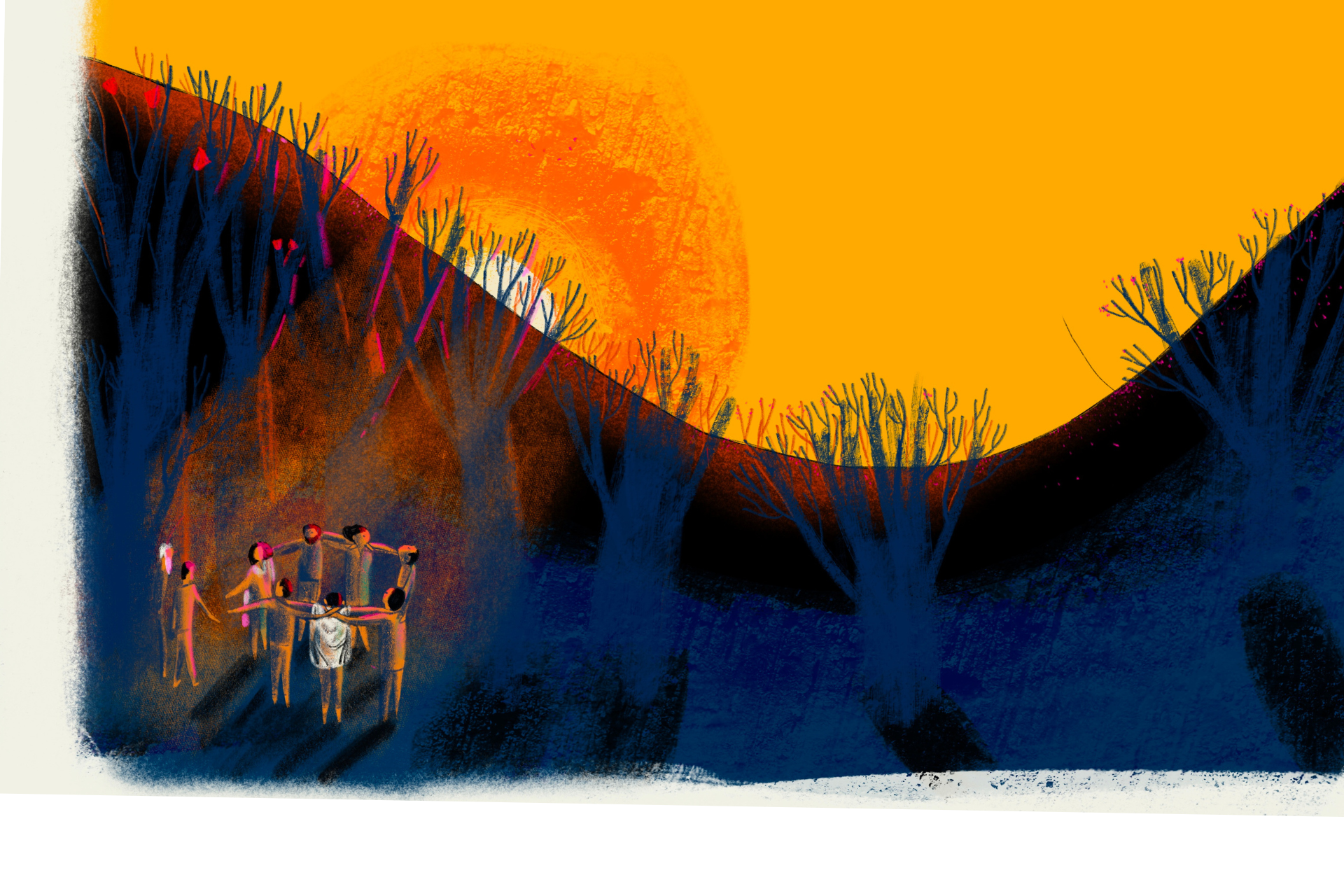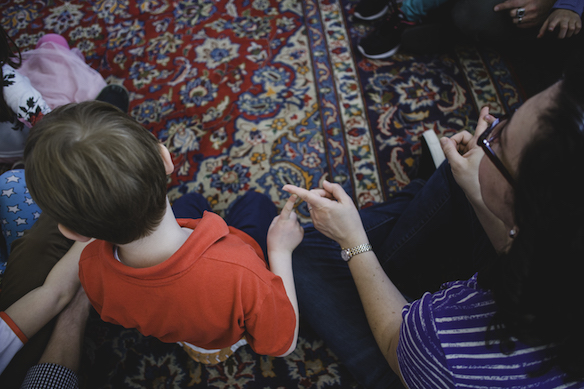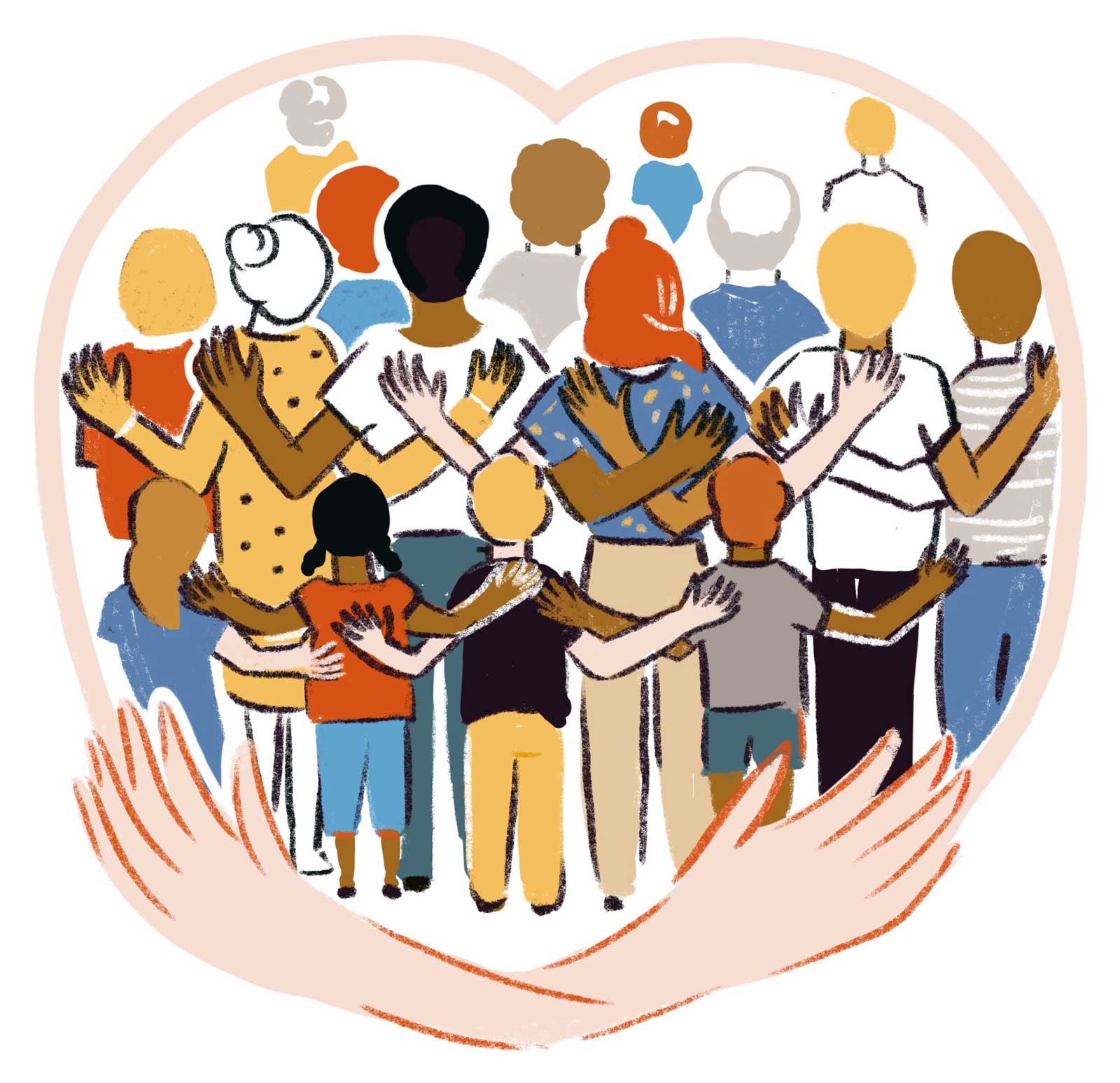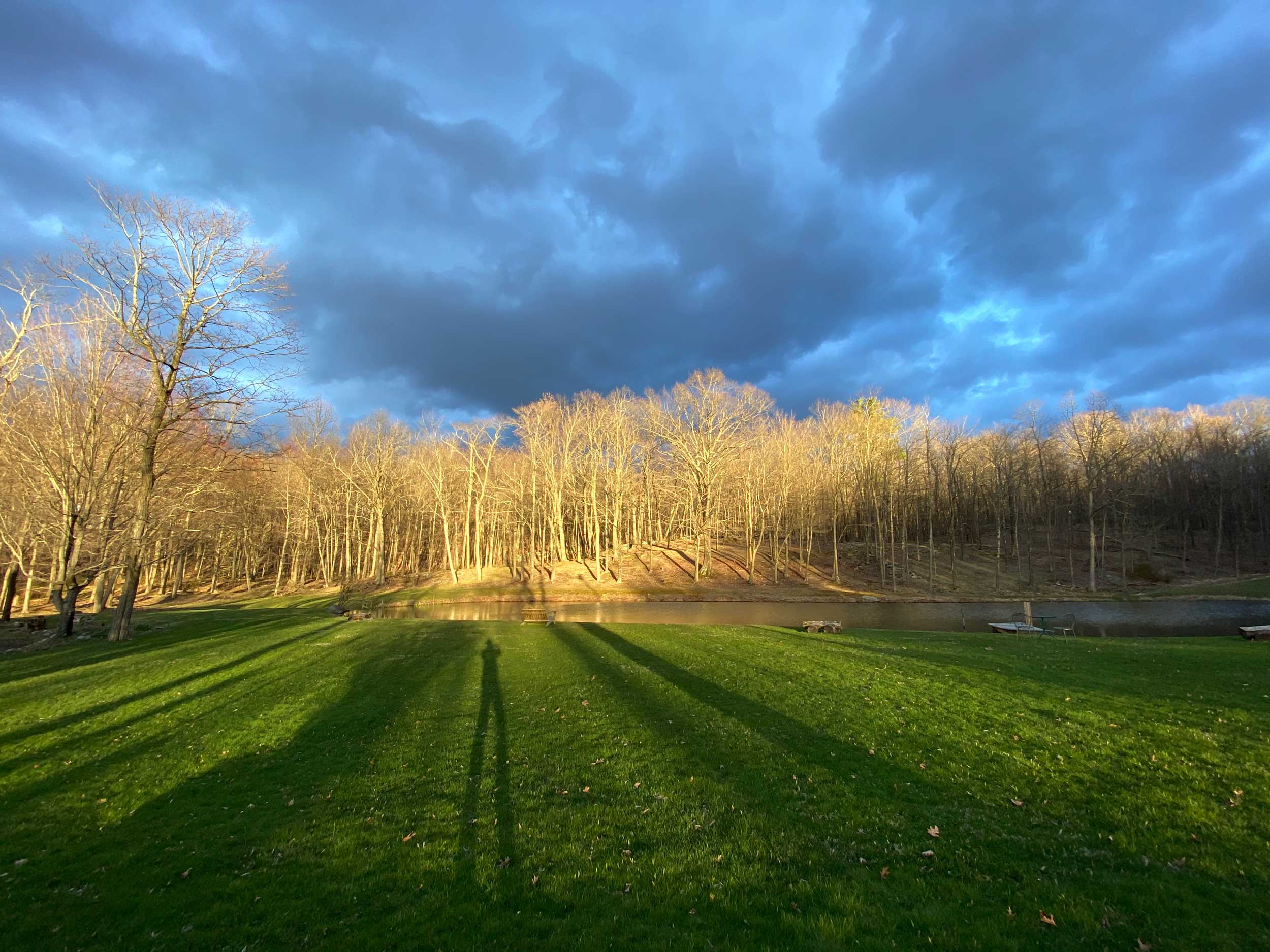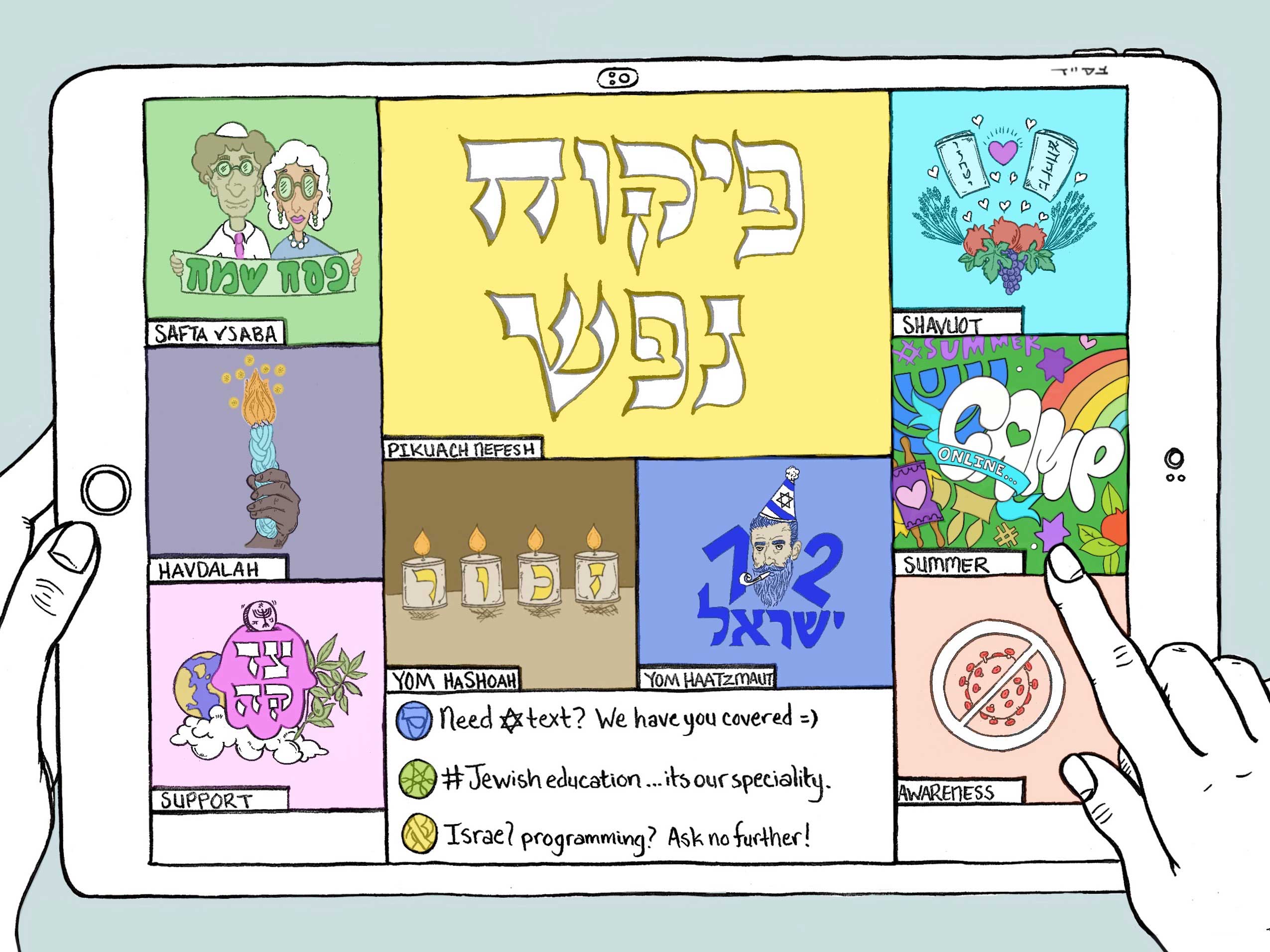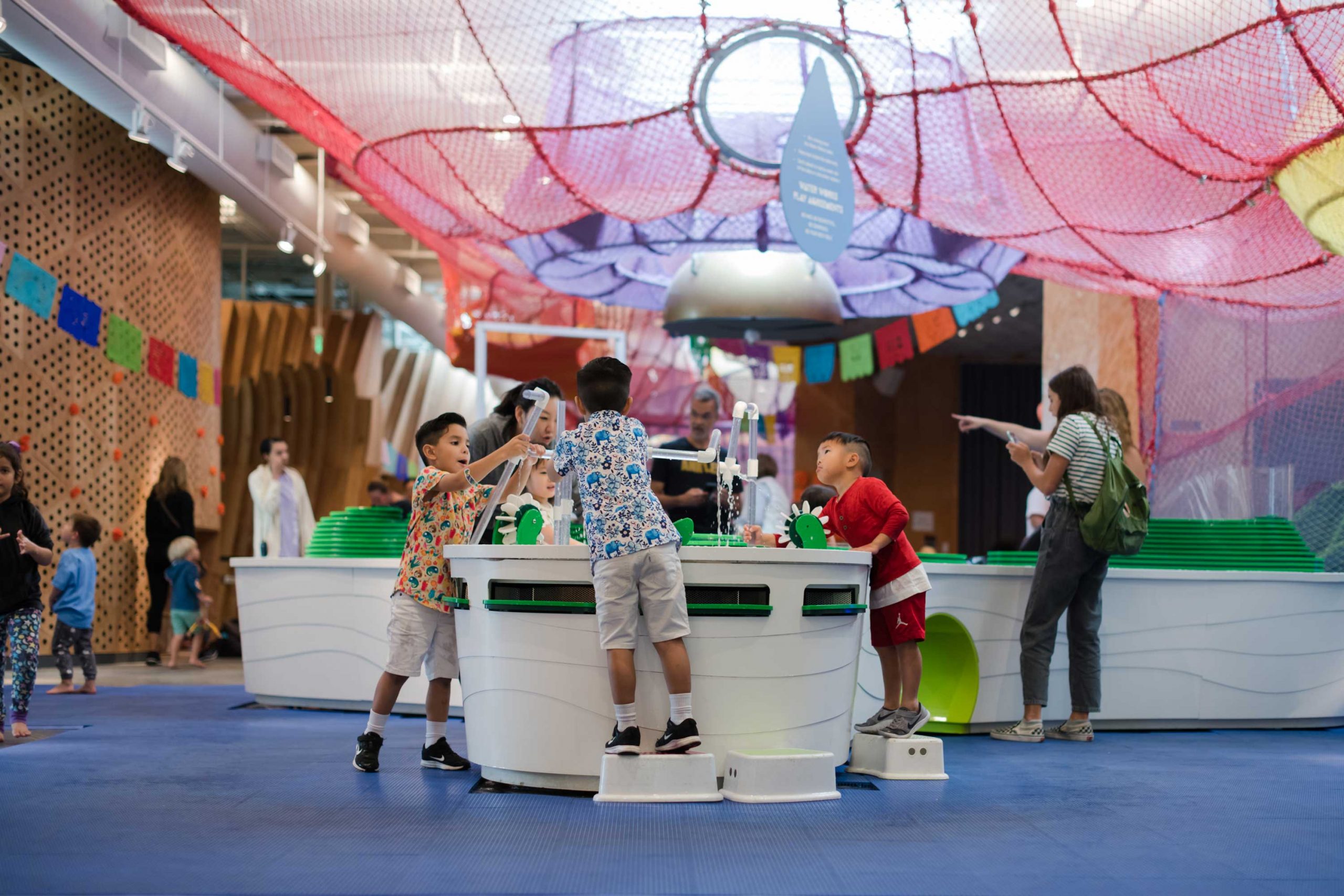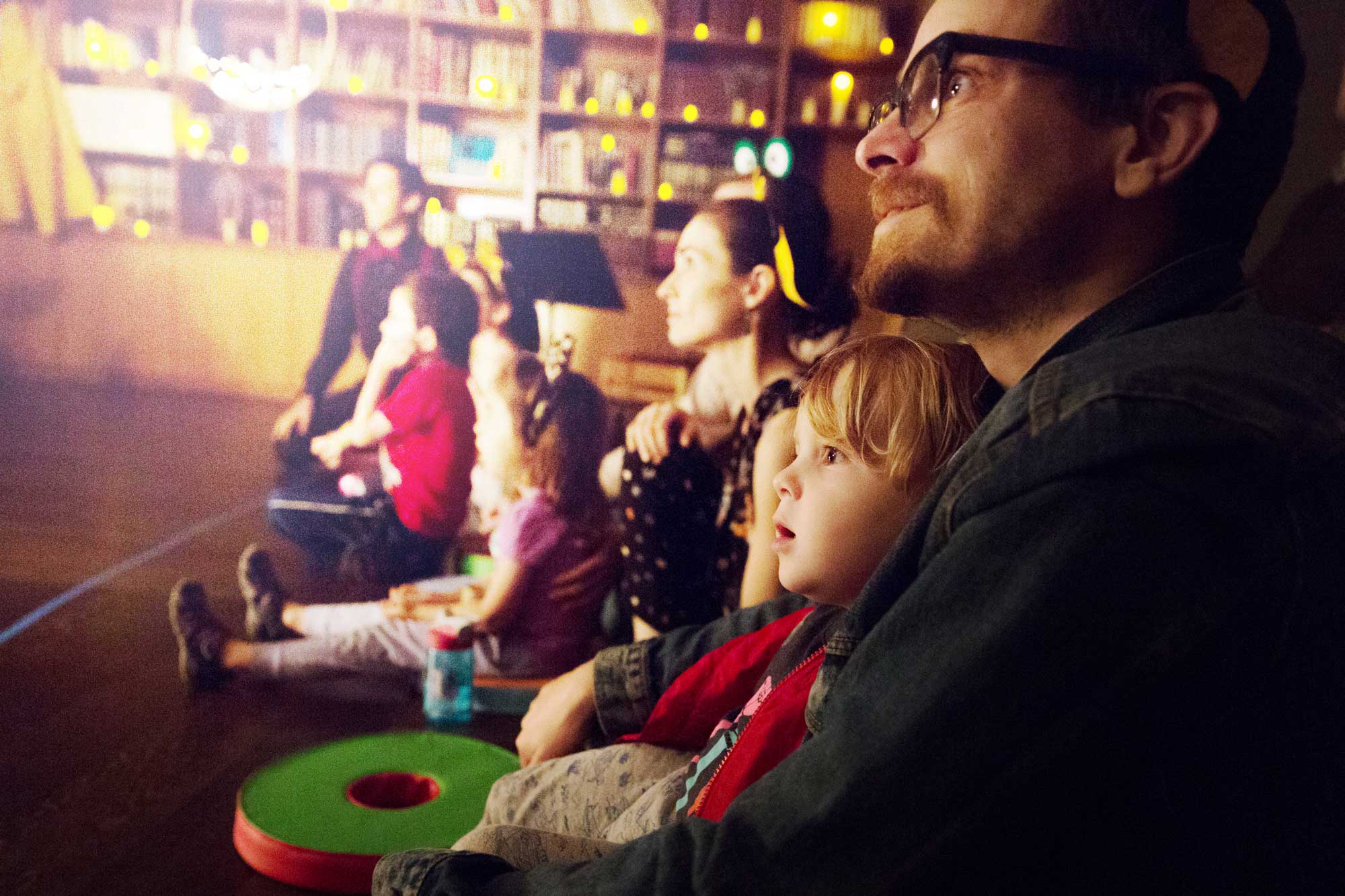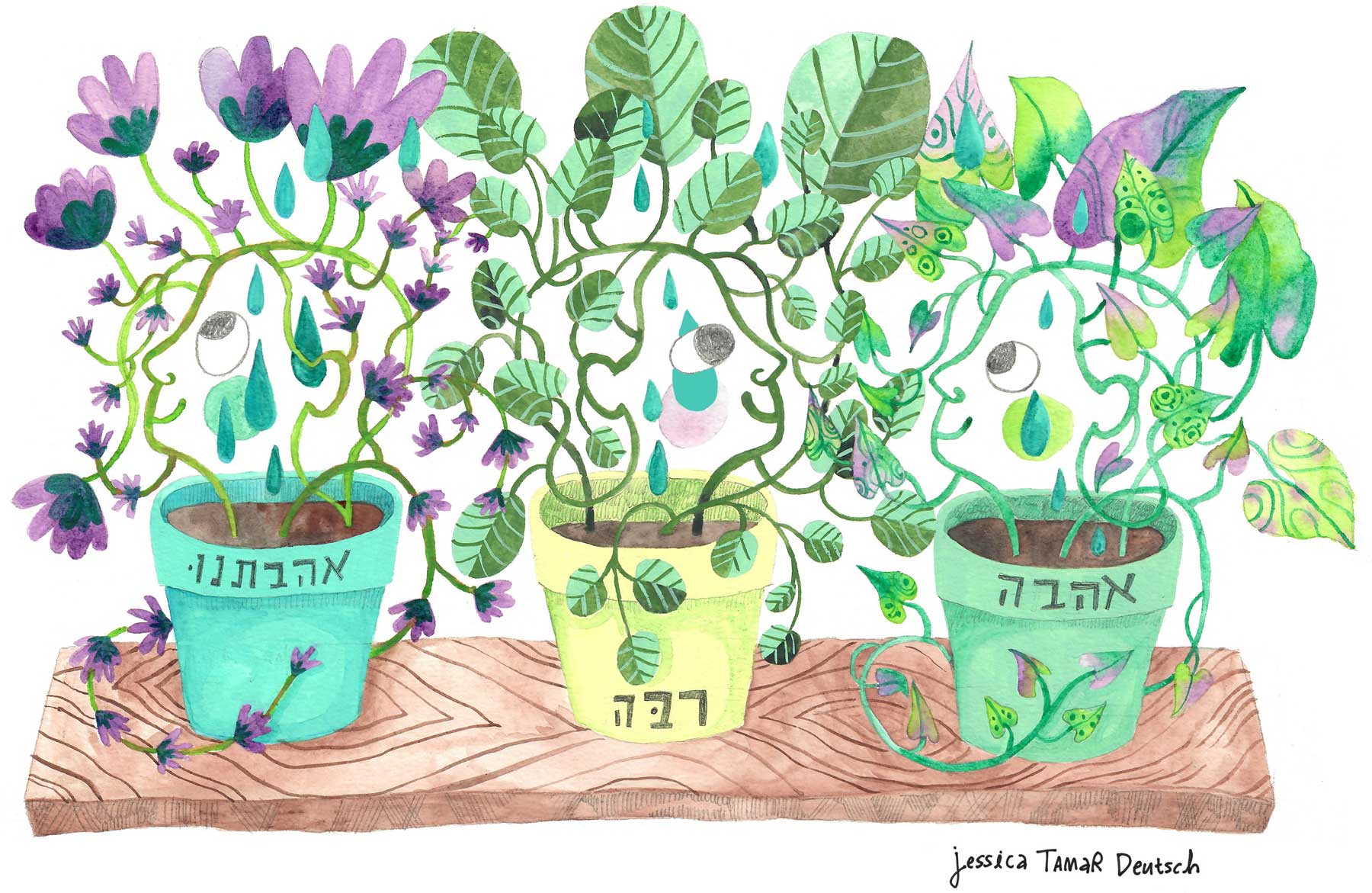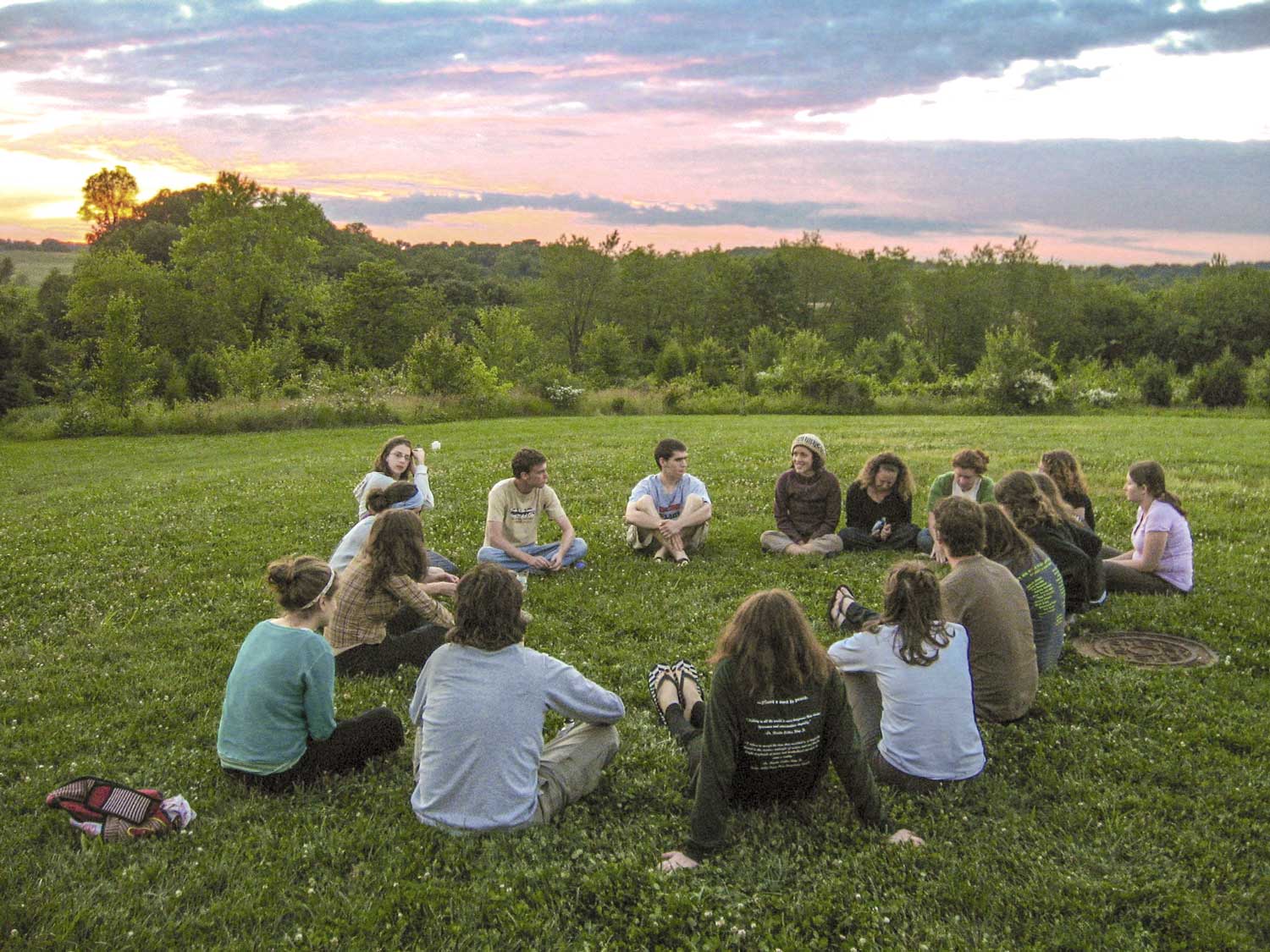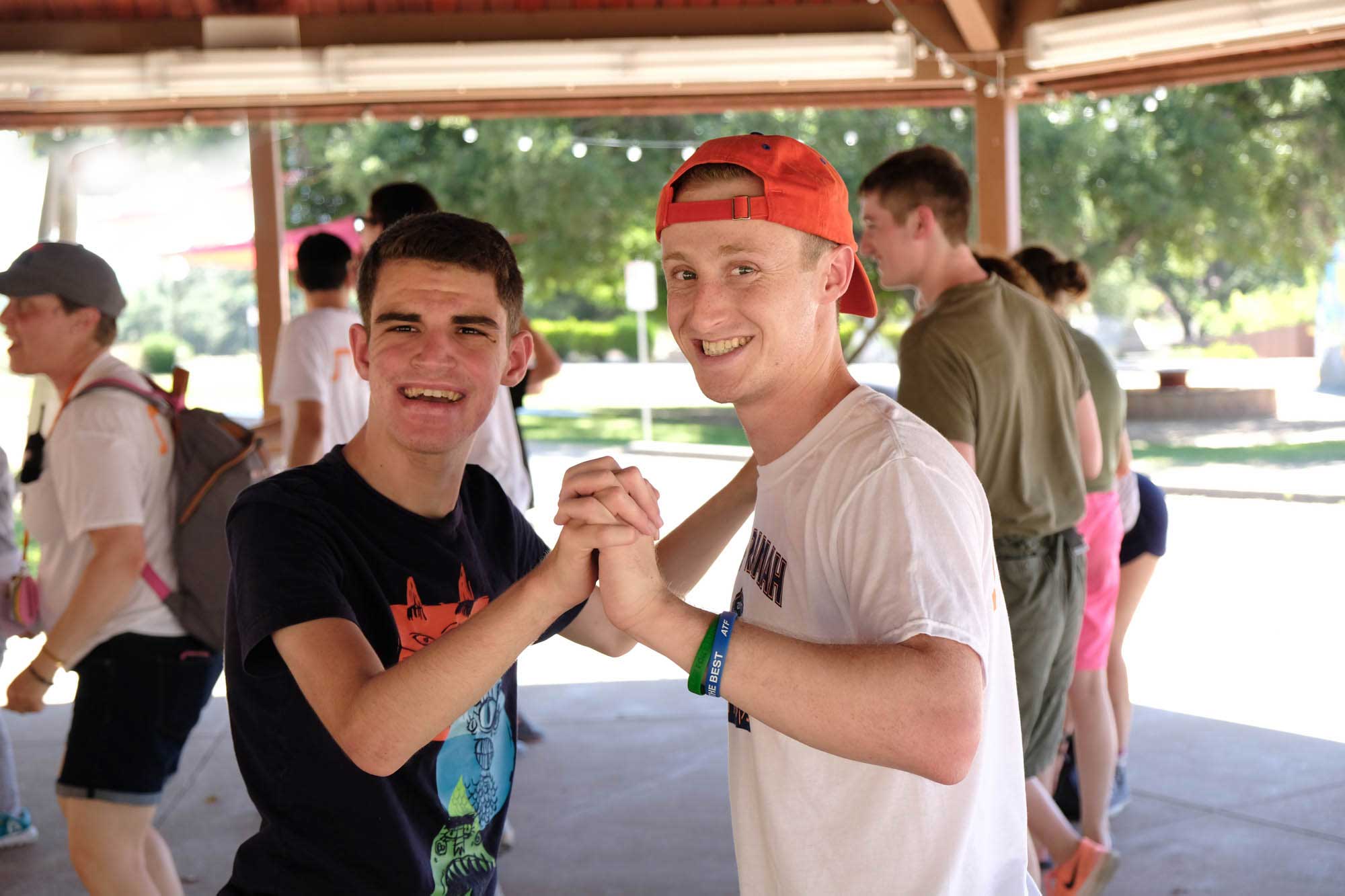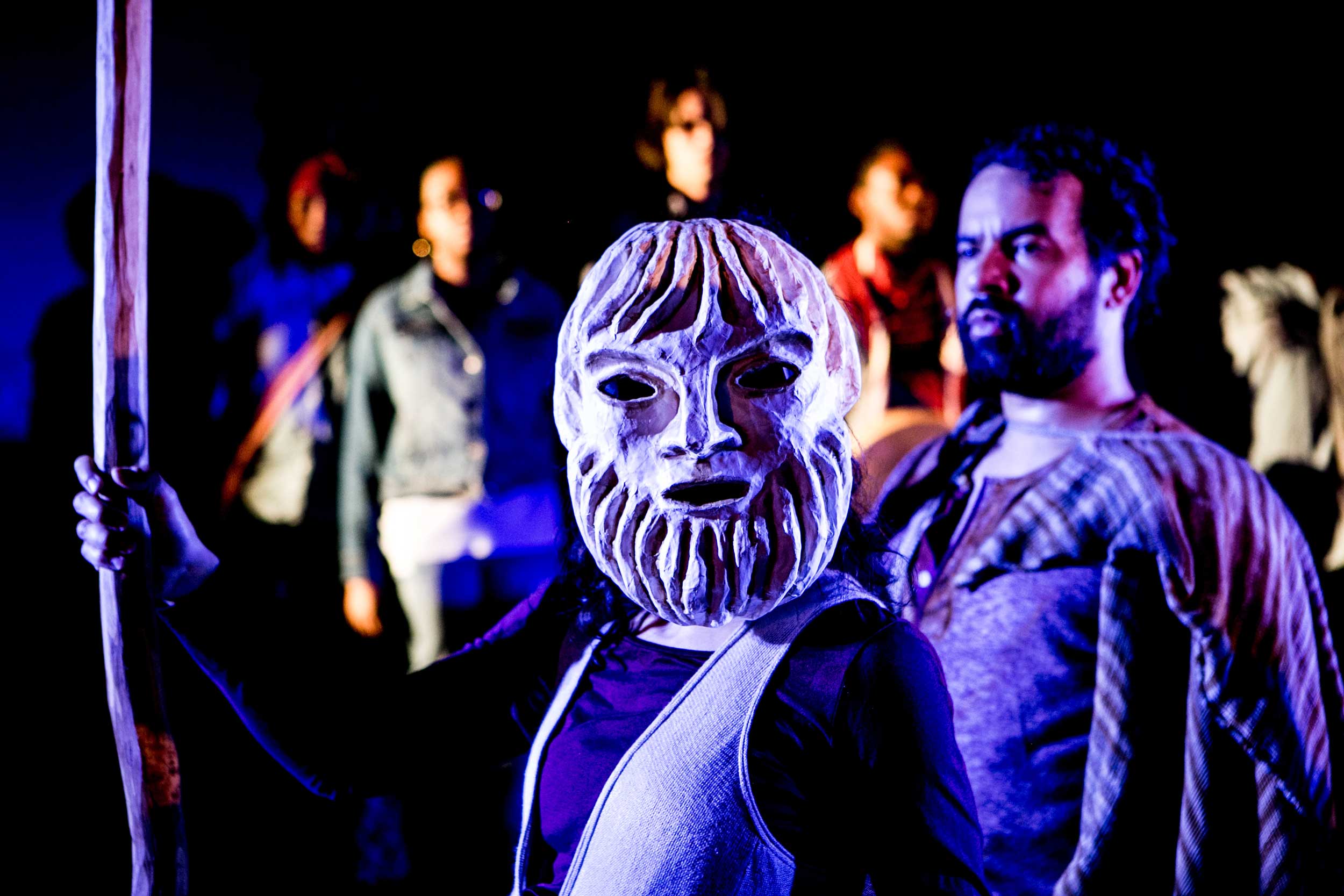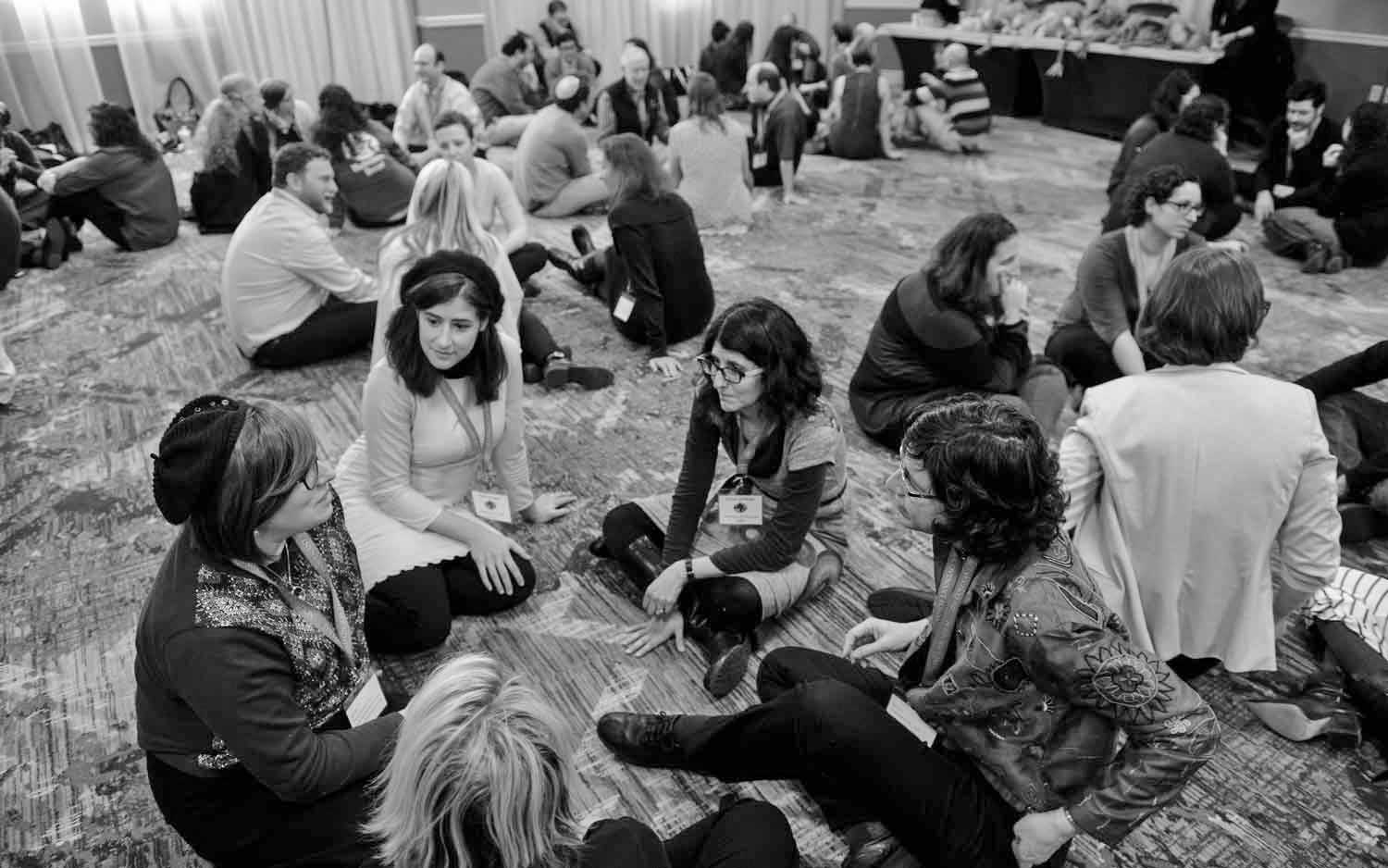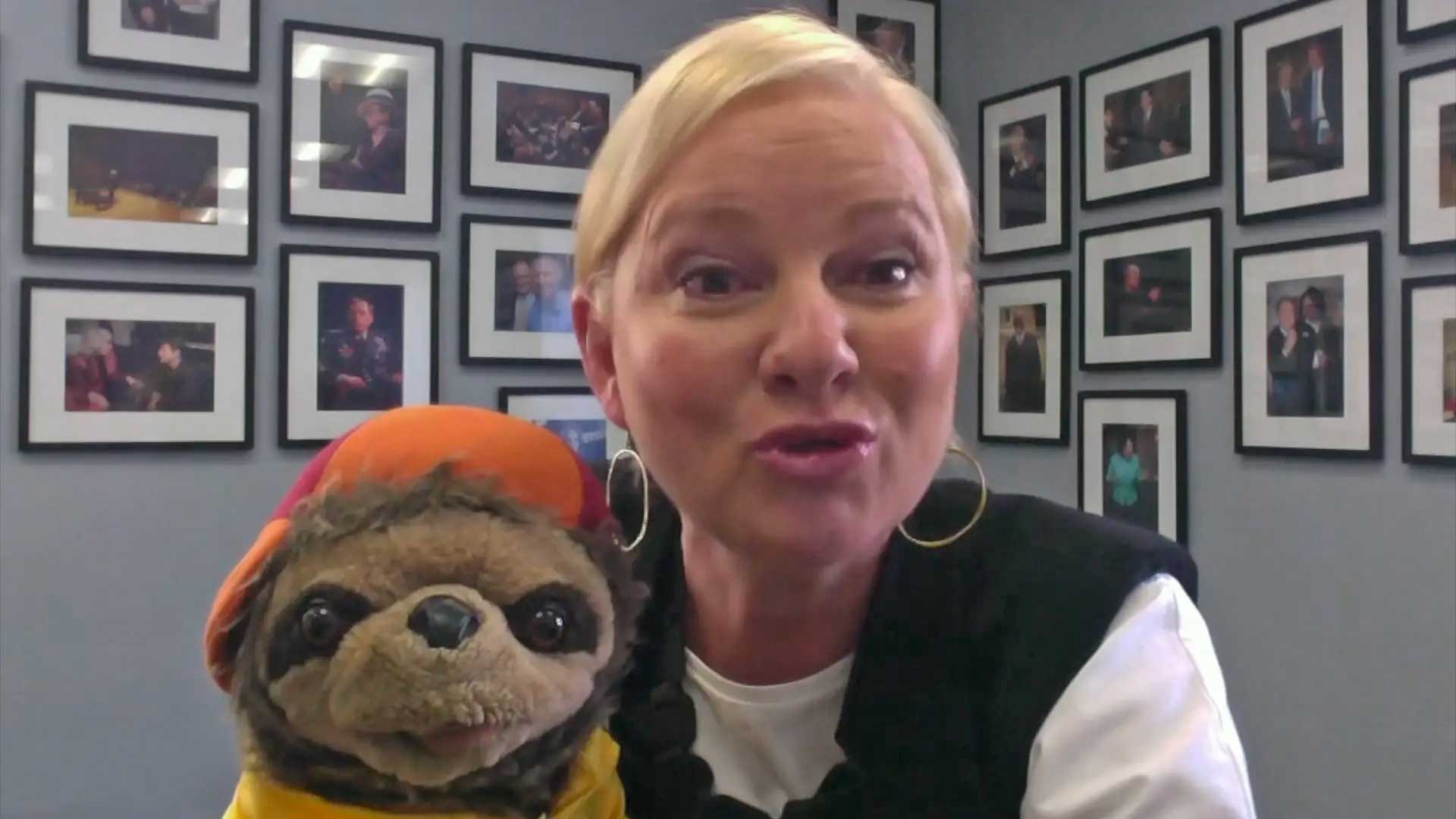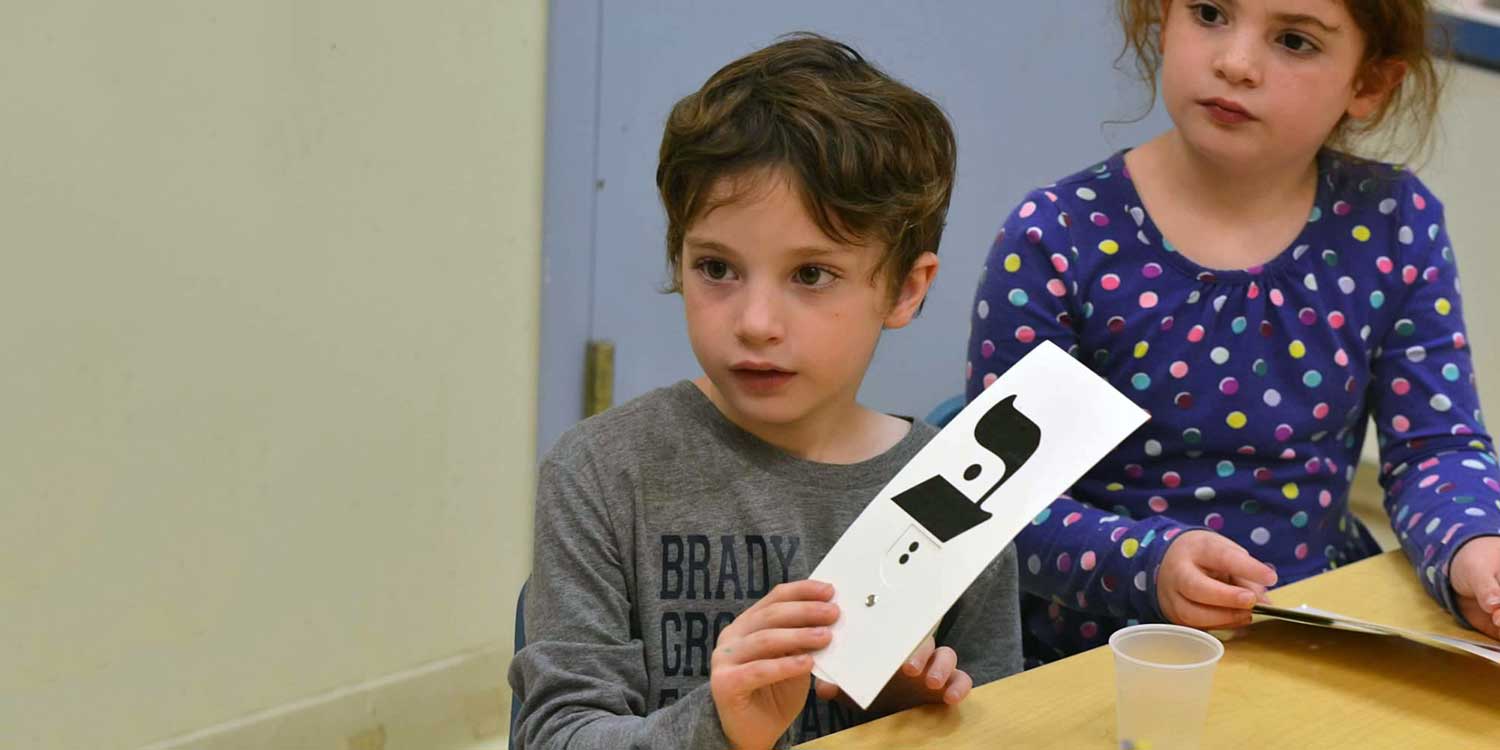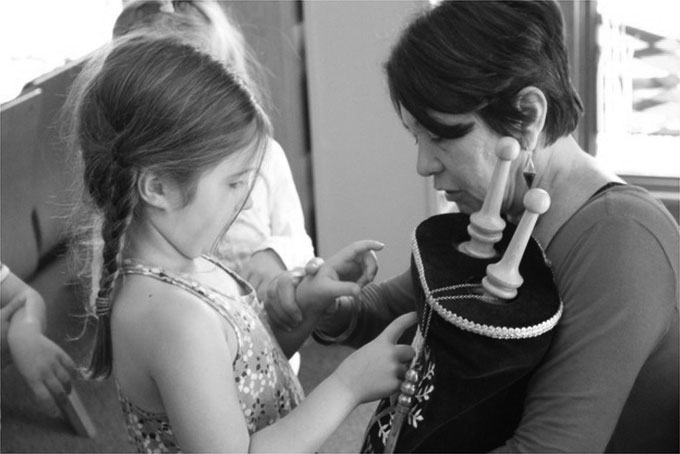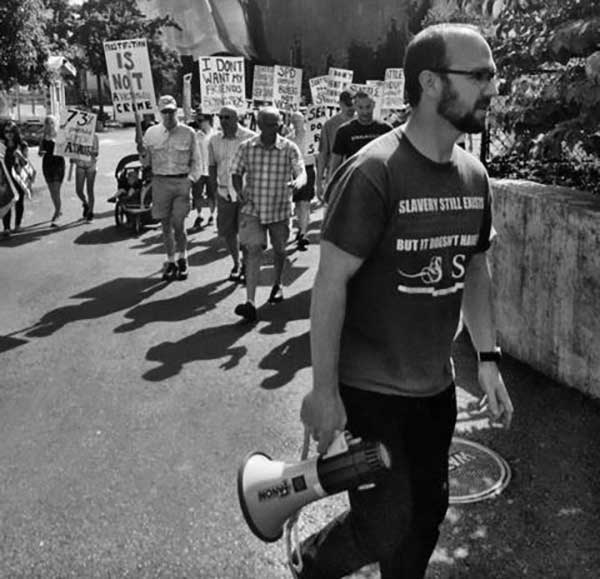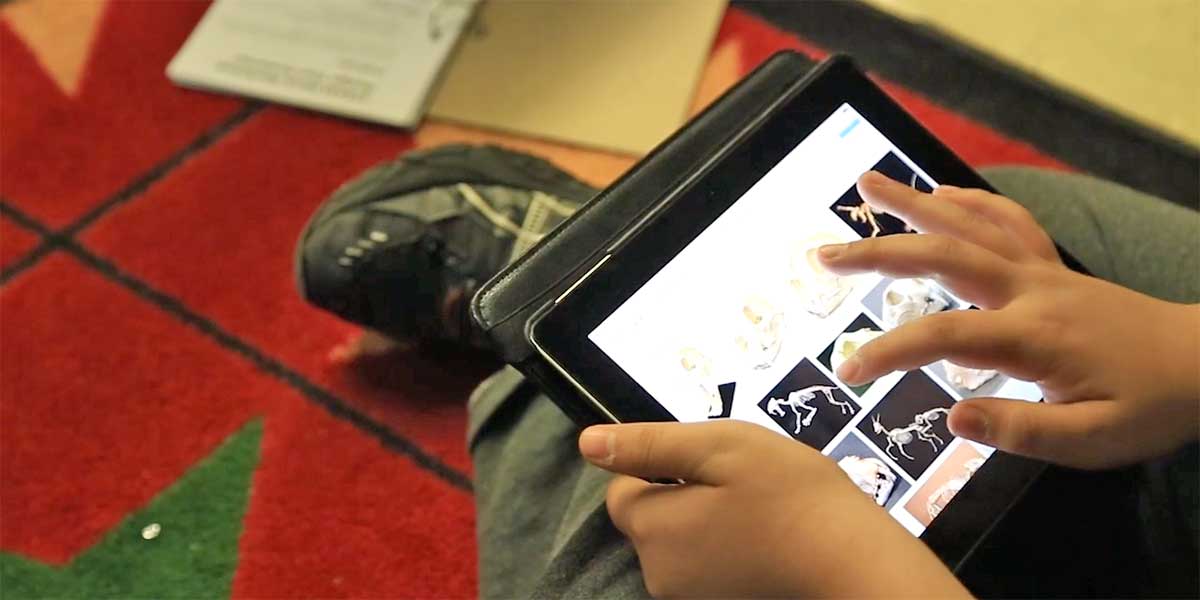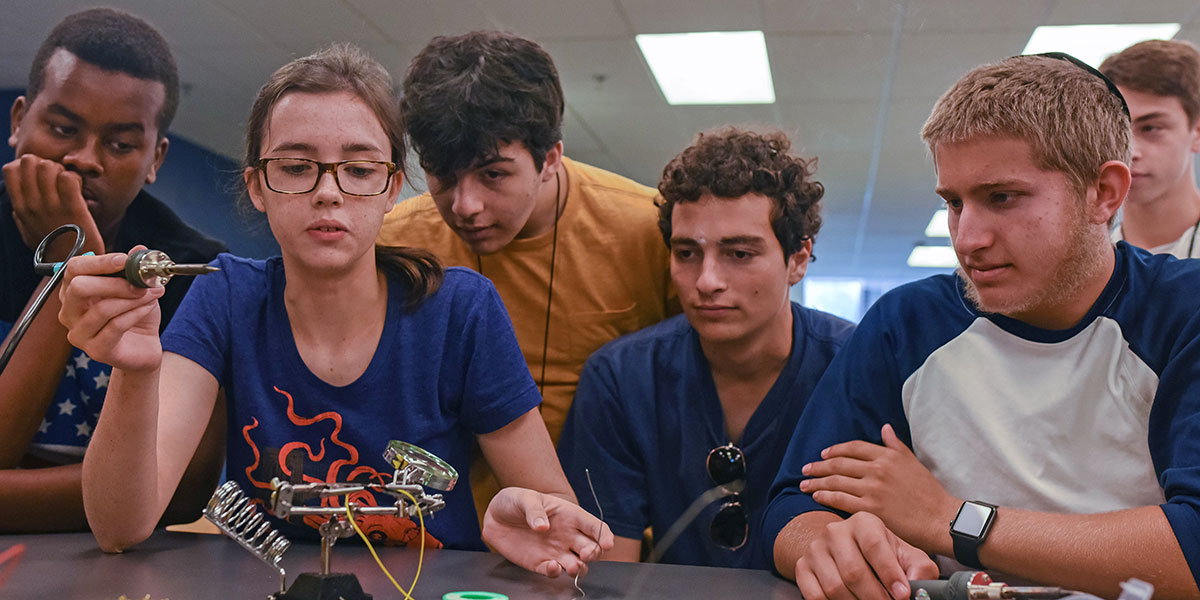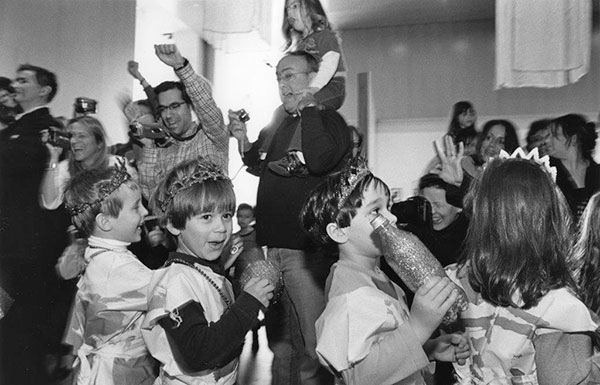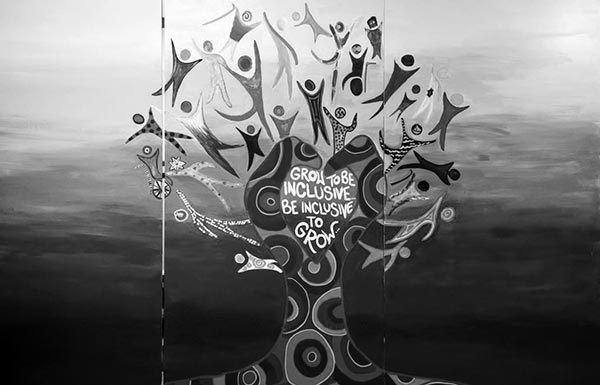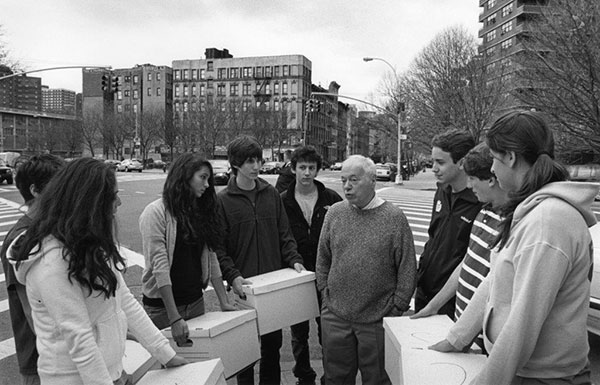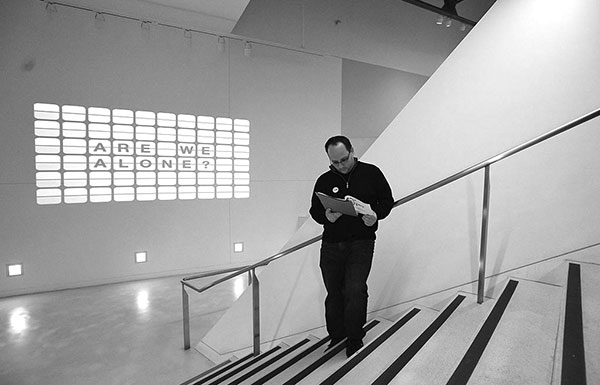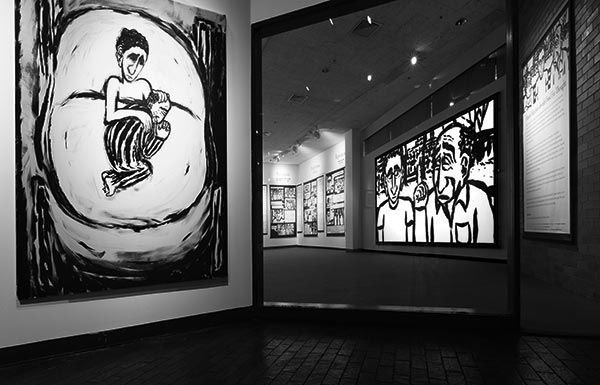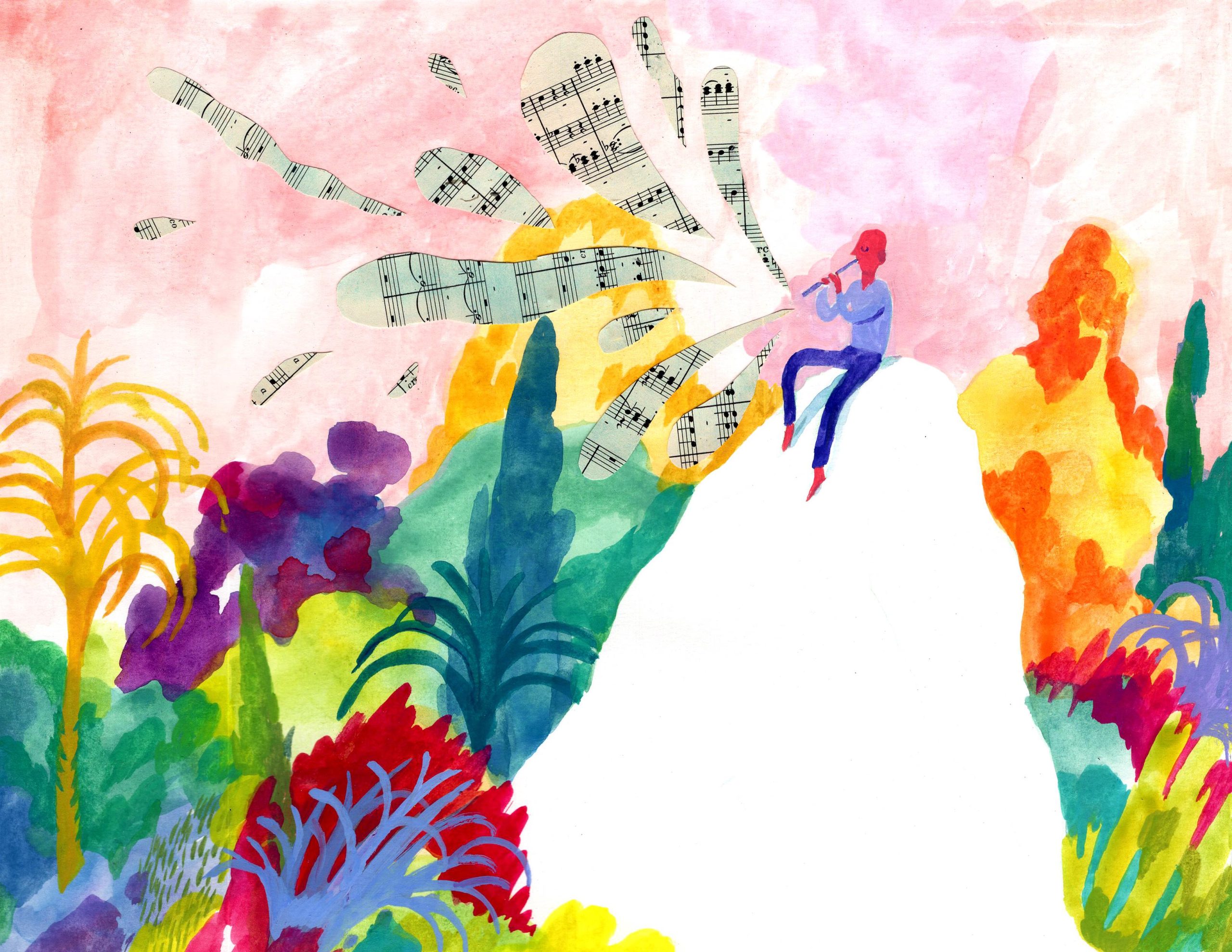
ARTICLE The Art and Soul of Songleading
Eliana Light’s life has always been filled with song. She grew up in a joyous Jewish home, where she and her family would sing all throughout Shabbat dinner each week. The daughter of a Conservative rabbi and a Jewish educator, Light loved going to synagogue and learned to lead services from a young age. As a child, she made up songs constantly, writing down her first Jewish song in fourth grade.
Light never stopped songwriting, but by the time she was in college, she had mostly stopped singing—until senior year, that is, when Michael Kates, of The Baal Shem Tones, reached out to Light and invited her to teach and sing at the NewCAJE conference. After performing at this gathering, many Jewish educators asked her where they could find her songs to use in their own settings. Then, months later, performing artist Jon Adam Ross, executive director of 2015 Covenant grantee The In[HEIR]itance Project, invited her to serve as Rosh Shira at Camp Ramah Wisconsin. In preparation for this newfound role, Light attended Hava Nashira, an annual songleading and music conference that brings together Jewish educators, songleaders, and community members to share the best thinking around worship and communal singing. It was through these formative experiences that she discovered that Jewish education, combined with singing and songwriting as her primary tools, could be a real career path.
Light went on to earn her master’s degree in Jewish Education from The Jewish Theological Seminary and taught at multiple synagogues across New York City. Then, in 2021, she founded The Light Lab, which received a Covenant Ignition Grant to support the T’fillah Teacher’s Fellowship program. At a time when many Jews—both children and adults—struggle to connect with prayer, The Light Lab provides professional development, an array of classes, and individualized consulting, all designed to support educators in making t’fillah (prayer) accessible and meaningful to all seekers.
Through The Light Lab, one of the main ideas Light teaches is that being a song or prayer leader is about relinquishing control.
“Just like a party planner’s job is to make it possible to have fun, but they cannot guarantee every person’s experience, there are so many choices I have as a prayer leader, and those choices can make it more or less likely that someone will have a meaningful prayer experience, but in the end, it's not a guarantee,” said Light.
Light herself always chooses to begin with the language of invitation when embarking on singing with a group. When you start with an invitation, it changes the tenor of the entire room, because people feel that they can bring their full selves to the space.
“Everybody is bringing [something on their minds] with them, so it’s an acknowledgment that we are not going to ignore those things, but we can invite people to set them down for a moment and take that deep breath,” Light explained. “It’s also about spiritual accessibility. By inviting people into a feeling, we’ve given them the key for this [particular] t’fillah—to use with or without the words.”
The language of invitation also creates space for people to feel safe enough to be vulnerable. After all, an invitation can always be declined. Many people are not comfortable singing because it has become so professionalized. However, Light insists that everyone can sing, and that making music is not just for professionals. “Music and song are meaningful tools for everyone who is called to that particular art,” she said.
While some may be hesitant to join in, Light says that, more often than not, her invitation is accepted and people sing along with her. And when people sing together, that’s when the magic happens. Singing together helps us feel connected on a deeper level—and reminds us that we aren’t alone.
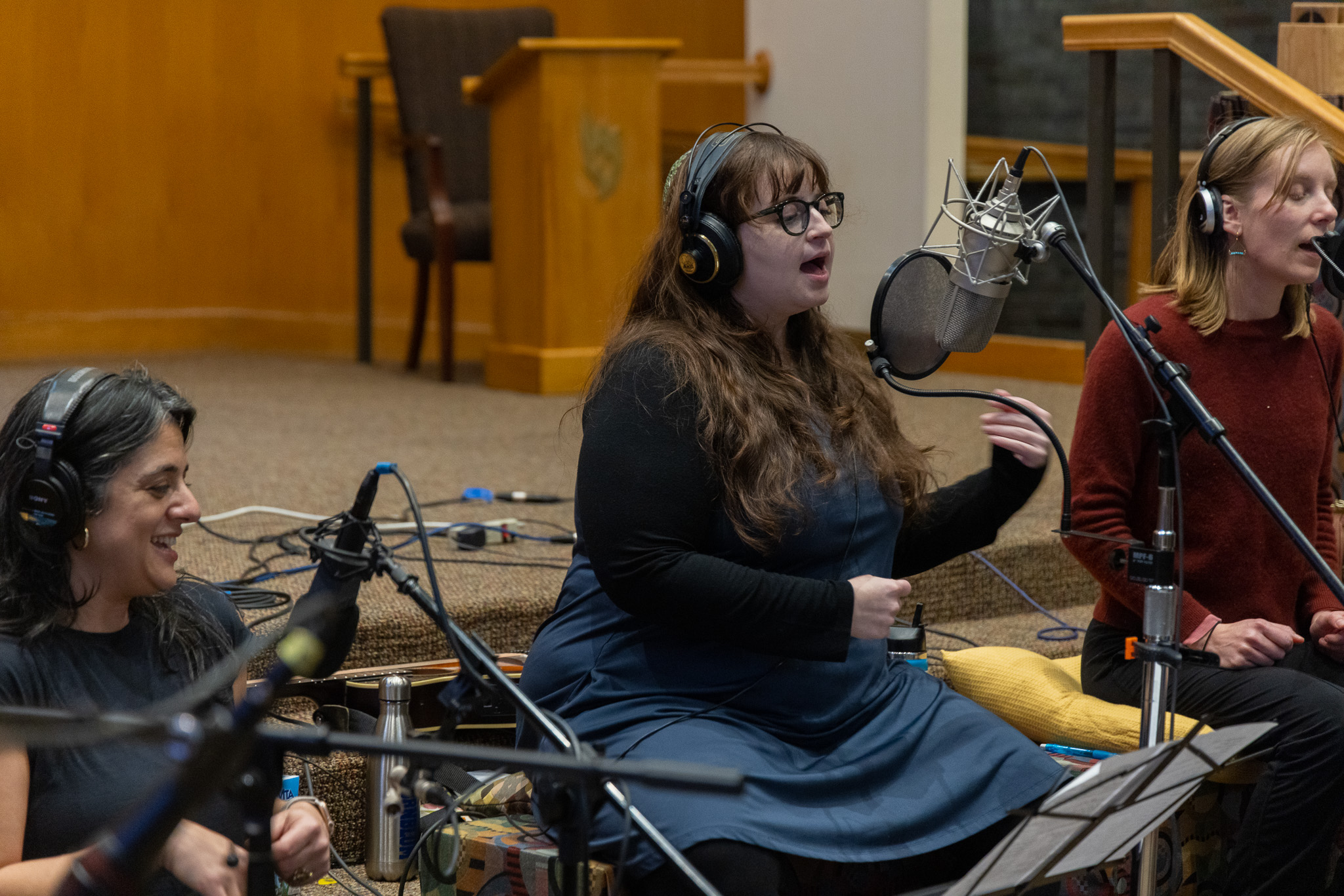
Despite frequently being practiced communally, t’fillah is, of course, also a deeply personal spiritual practice. “Part of my ‘t’fillahsophy,’” Light said, “is that the words of the liturgy and the accompanying melodies are attempts to access an inner experience, which we get to have collectively. T’fillah allows us to look both inward and outward at the same time.”
Song has the power to bring us into the present moment and into ourselves, and gives us an instantaneous connection to that which is ineffable.
“Music and melody can reach to a deeper emotional place than words alone,” noted Light. “That’s what connects [song] to t’fillah—prayer is putting a divine experience into words, but failing. It’s that feeling of being beyond words.”
Music has a temporal quality as well, in which it connects us both to a specific time but also opens space for timeless moments. For instance, when we sing the Avinu Malkeinu (Our Father, Our King) prayer each year on Rosh Hashanah and Yom Kippur, it connects us to all the other times we’ve sung the prayer before, but also enables us to feel something new in the moment.
“Singing brings you into your body,” Light reflected. “Through t’fillah, we give ourselves permission to feel and music can facilitate that feeling. It can help us feel through the challenging things in our lives instead of ignoring them.”
At a time when there are so many challenges and so much darkness in the world, it’s uplifting to hear the joy in Light’s voice as she expresses her gratitude for the work she gets to do. “I can't believe this is my job,” she said, “How did this become my job? It’s the best thing ever.”
Looking back on her career thus far, there is a particular moment that stands out because of the way it brought together all the key elements—community building, spiritual nourishment, and social-emotional learning—that have inspired Light to make this her life’s work. That meaningful moment was back in February 2020, when no one knew what was coming later that year. Light was on the educator team of Songleader Boot Camp, a national Jewish songleading conference. When all the t’fillah leaders gathered in a black box theater in a round, Light led them in song. Those prayer leaders, who are usually holding a significant weight of responsibility, were able to take a step back and just be in the present moment. “Everyone had a chance to be held and let go,” Light said. “It felt like a highlight of my professional life to hold that space for the community.”
Around a month ago, Eliana released her fourth album, Orah Hi (She is Light), which she recorded with friends and colleagues in Atlanta. It was the first time she had recorded an album singing live with a group. She specifically wanted that ethereal experience of singing together.
“The process was as important to me as the product—that intangible, beautiful, connective, timeless, in the moment feeling with other people. It felt like a prayerful experience, and when I listen to it now it takes me back there. When people listen to it, I hope they’re singing with us.”
By Yonah Kirschner

